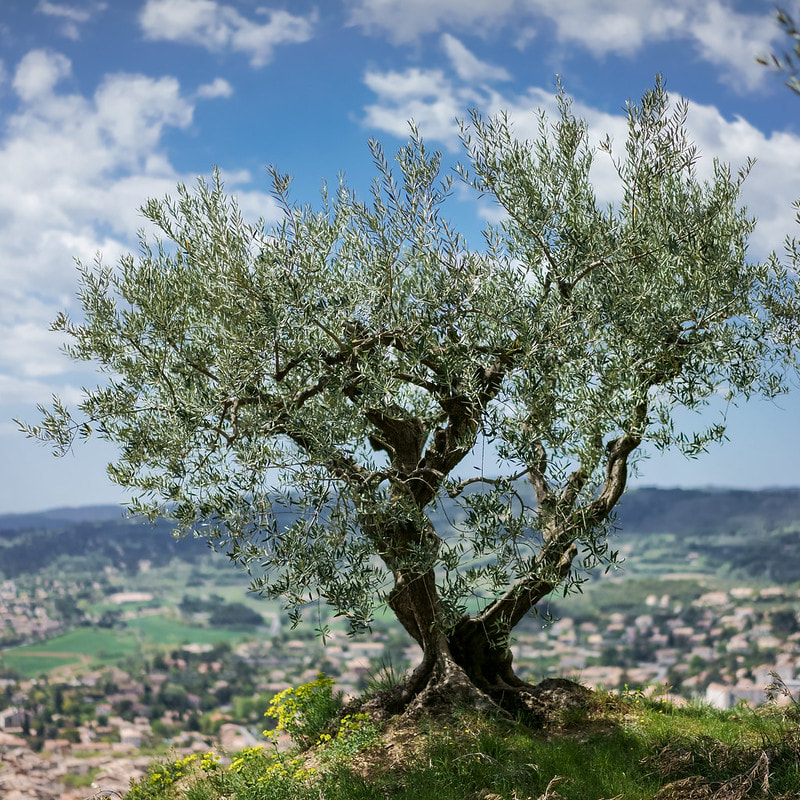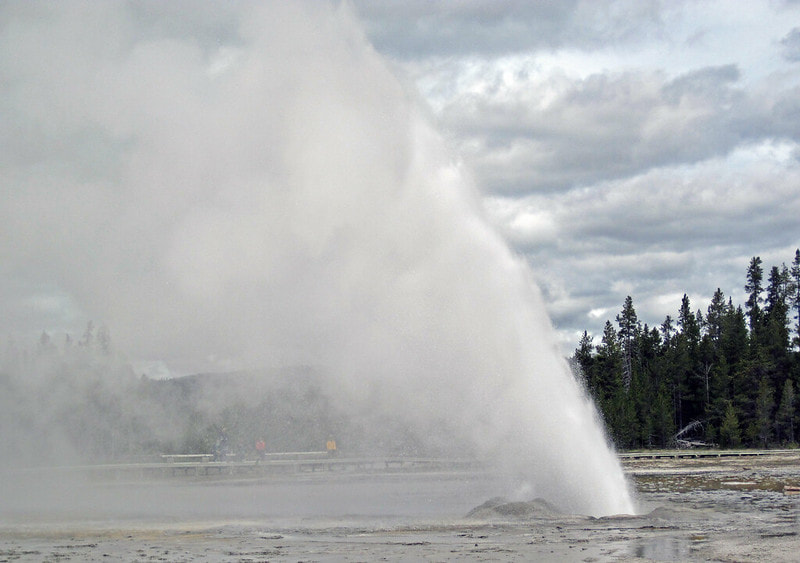|
Last year I placed a large pumpkin on the ground by my front door. After only two weeks the bottom of that pumpkin rotted. My husband attempted to pick it up and carry it to the dumpster in our community. Bad idea!! The bottom fell out of the pumpkin and rancid, smelly liquid and moldy seeds poured out all over the sidewalk. It took us a long time to clean up the mess. The rotten smell remained for quite some time even though we poured boiling water on the residue. Knowing that God always has spiritual lessons for me from natural experiences, I asked Him what I could learn from this event. This is what I heard: "That is how the demonic realm works. It weakens the foundation and transforms the soul into a smelly mess. Then it impacts everything it touches." So true!
Everything that is established on the earth has a foundation. Frequently we think of a foundation in conjunction with a building. It is the first layer of a structure that provides a stable base for the rest of it. In Matthew 7:24-25 Jesus says His words that are put into practice are like a wise man who built his house on a rock foundation (bedrock). His house would not be shaken because its foundation is on the rock. Scripture tells us that the earth rests on a foundation. The power of the Lord is revealed in Psalm 18:15 and 2 Samuel 22:16. He exposed the foundations of the earth with a "blast of breath from His nostrils." According to Psalm 104:5, "He set the earth on its foundations; it can never be moved." As Christians, we have a foundation in the Lord, as stated in 1 Corinthians 3:11. "For No one can lay any foundation other than the one already laid, which is Jesus Christ." We also are building on a foundation that has been established through those in the faith who have gone before us. "...You are no longer foreigners and aliens, but fellow citizens with God's people and members of God's household, built on the foundation of the apostles and prophets, with Christ Jesus as the chief cornerstone." (Ephesians 2:19-20) Our nation was built on a foundation of Christian principles. But what has happened to us? What are the ramifications of a crumbling foundation? What is built on top of a crumbling foundation also crumbles. Foundations are laid with great care. They must be plumb and sturdy. Our forefathers, when writing the Constitution and the Bill of Rights, used the Bible as a model in writing them. They knew that if we built upon the bedrock of Scripture we could not be shaken, and we would prosper. Here is what the Lord told the people of Israel: "Walk in all the way that the Lord your God has commanded you, so that you may live and prosper and prolong your days in the land that you will possess." (Deuteronomy 5:33) It is essential that Christians only build upon the foundation of the truth of God's Word. Otherwise, we will be pulled into the ways of evil and impact the world around us in a negative way. It is my belief that the soul of our nation is soiled and sick because we are not building upon our original foundations. As individuals, we are warned by the apostle Paul to put on "the full armor of God, so that when the day of evil comes we may be able to stand our ground..." (Ephesians 6:13) 1 Thessalonians 5:22-23 is an admonition to all of us. "Avoid every kind of evil. May God Himself, the God of peace, sanctify you through and through. May your whole spirit, soul and body be kept blameless at the coming of our Lord Jesus Christ." How do we do this? Stay on the foundation that was laid for us by the Lord. "See I lay a stone in Zion, a tested stone, a precious cornerstone for a pure foundation. The one who trusts will never be dismayed." (Isaiah 28:16) The Lord's appointed festivals are first described in the book of Leviticus, Chapter 23. The Feast of Tabernacles is particularly unique because it last for seven days and God's people are instructed to live in temporary shelters for seven days as their ancestors did when they were brought out of Egypt. Leviticus 23:40 tells us, “On the first day you are to take branches from luxuriant trees--from palms, willows and other leafy trees--and rejoice before the Lord your God for seven days." Here is how Deuteronomy 16:15 describes this joyful festival: "For seven days celebrate the festival...for the Lord your God will bless you in all your harvest and in all the work of your hands, and your joy will be complete." Reading through the Old Testament, one can see how faithful the Israelites were to follow the law when it came to celebrating the feasts. The exiles who returned to Jerusalem to rebuild the temple settled in and "began to build the altar of the God of Israel to sacrifice burnt offerings on it..." (Ezra 3:2) In the seventh month they celebrated the Feast of Tabernacles. (Verse 4)
In my opinion, the most interesting reading concerning the Festival of Tabernacles occurs in Nehemiah 8:14-16. "They found written in the Law...that the Israelites were to live in temporary shelters during the festival of the seventh month...'Go out into the hill country and bring back branches from olive and wild olive trees, and from myrtles, palms and shade trees to make temporary shelters'--as it is written." The unique part of the festival celebration with Nehemiah is that they cut branches from the olive tree and the wild olive tree. What a picture of the apostle Paul's dissertation on grafted in branches! Israel is frequently referred to as an olive tree. The people of Israel are the branches. Paul recognized that many of his people did not receive the good news of Jesus as Lord. (Romans 10:16) Because of it, "God gave them a spirit of stupor, eyes that could not see and ears that could not hear..." (Romans 11:8) "Because of their transgression, salvation has come to the Gentiles to make Israel envious.” (Romans 11:11) Paul uses an analogy, describing the Jews as olive branches and the Gentiles as wild olive branches. "If some of the branches have been broken off, (Jews) and you, though a wild olive shoot, (Gentiles) have been grafted in among the others and now share in the nourishing sap from the olive root, do not consider yourselves to be superior to those branches. If you do, consider this: You do not support the root, but the root supports you." (Romans 11:17-18) One day the olive tree will flourish with the natural branches and the wild branches both grafted in. We read in Ephesians 2:15 that God's "purpose was to create in Himself one new man..." Jew and Gentile will live together in peace, both reconciled to God. As the Jews in Nehemiah's day laid the branches of the olive tree and wild olive tree on the top of their temporary shelters they would have been looking up at a picture of the future. One day Jew and Gentile together will worship the King of kings during this festival. (Zechariah 14:16-19) When and how this will come to pass is unclear. What is clear is that we will be worshiping The Lamb together in joyful celebration. What a day this will be! The journey of the children of Israel through the wilderness for 40 years is recalled during the celebration called The Feast of Tabernacles, Ingathering or Sukkot. That celebration will begin at sundown tonight and is the greatest harvest feast of the year. The Jews build and dwell in temporary shelters called sukkahs or booths. The tops are open and covered with tree branches that allow those dwelling in the booths to see some of the stars in the sky. For seven days they have their meals or sleep in these temporary shelters. The Jews are taught to pray that God will send rain for the coming year since none falls between May and October.
In Israel, the borders of the Sea of Galilee have shrunk because of drought. Much of the land is desert and, its inhabitants are keenly aware of their need for water. On the last day of the Feast of Tabernacles the Temple priests performed the Water Libation or Pouring Ceremony. During this time, impassioned prayers were lifted to God by worshipers for abundant rain. It is significant that water was collected from the Pools of Siloam (meaning sent or sending forth) and brought to the Temple in Jerusalem where the priest would pour it out, along with wine, onto the altar. While this pouring was taking place, the people and the priests sang Isaiah 12:3-6. "With joy you will draw water from the wells of salvation. In that day you will say, 'Give thanks to the Lord, call on His name; make known among the nations what He has done, and proclaim that His name is exalted. Sing to the Lord, for He has done glorious things; let this be known to all the world. Shout aloud and sing for joy, people of Zion, for great is the Holy One of Israel among you.'" For those of us who know Jesus as Savior, this Scripture is particularly meaningful. Yeshua is the Hebrew word for salvation. For us to have the abundant life that He offers we must draw deeply from the "wells of Salvation." The wells of Yeshua will never run dry. In fact, here is what He proclaimed: "Then on the most important day of the feast, the last day, Jesus stood and shouted out to the crowds--'All you thirsty ones, come to me! Come to me and drink! Believe in me so that rivers of living water will burst out from within you, flowing from your innermost being, just like the Scripture says!' Jesus was prophesying about the Holy Spirit that believers were being prepared to receive..." (John 7:37-39 - TPT) Just as the Israelis cry for the physical rain, we must use this season to cry out for the rains of the Spirit to saturate us. Yeshua has already poured out blood and water from His side as He hung on the Cross. He was poured out like a drink offering so that we could have eternal life. He wants us to draw deeply from Him for deep calls unto deep. The Psalmist cries out, "May the words of my mouth and this meditation of my heart be pleasing in Your sight, Lord, my Rock and my Redeemer." (Psalm 19:14) We must agree with this cry as "The tongue has the power of life and death, and those who love it will eat its fruit." (Psalm 18:21) What we verbally agree with will manifest. We want to agree with the Kingdom of God with our mouths and should be especially aware of this in the season that we are in. All the prophets seem to be pointing out that we are in a new decade on the Hebrew calendar (5780) and likewise on the Greek calendar when the year 2020 begins. The Hebrew word "Pey" is representative of the number 80 and is a picture of a mouth. Prophets tell us that this is the decade of speaking and of prophetic declaration. Just as God used the power of His spoken words to birth the world, we have the power to create with our words.
How can the words of our mouths be pleasing to God? Many Bible verses give us insight on this. For example, "...gracious words are pure in His sight." (Proverbs 15:26) and "The mouth of the righteous is a fountain of life..." (Proverbs 10:11) For us to use our tongues in a way that delights the Lord, we must ask for wisdom. The book of Proverbs comes from King Solomon and includes many verses on wisdom. At the beginning of his reign as king of Israel, Solomon understood the great responsibility that had been handed to him by his father, King David. With a heart of humility, Solomon said to the Lord, "...I am only a little child and do not know how to carry out my duties...So give Your servant a discerning heart to govern Your people and to distinguish between right and wrong..." (1 Kings 3:7-9) The Lord's response reveals His pleasure in Solomon's request. "I will do what you have asked, I will give you a wise and discerning heart, so that there will never have been anyone like you, nor will there ever be." (1 Kings 3:12) We need wisdom to know what to release from our mouths. Here is something to consider as written in Luke 6:45. "For the mouth speaks what the heart is full of." If our words flow from our hearts, we must learn to "guard our heart, for it is the wellspring of life." (Proverbs 4:23) The apostle Paul gives us some insight on how to guard our hearts. "...in everything, by prayer and petition, with thanksgiving, present your requests to God. And the peace of God, which transcends all understanding; will guard your hearts and your minds in Christ Jesus." (Philippians 4:6-7) From these two Scriptures, we learn to guard our hearts and that peace, manifest through prayers and thanksgiving, will accomplish this. The Holy Spirit has been given to us to guide us in all truth. (John 16:13) His purpose is to bring glory to Jesus by taking from what is His and making it known to us. (John 16:14) Another important aspect of knowing how to speak in a way that pleases the Lord is to listen to His Spirit. James says, "Everyone should be quick to listen and slow to speak..." (James 1:19) 2 Corinthians 10:5 describes another aspect of listening. "...We take captive every thought and make it obedient to Christ." Finally, we must grab hold of a promise that Jesus made at the Sermon on the Mount. "Blessed are those who hunger and thirst for righteousness, for they will be filled." (Matthew 5:6) Psalm 37:30 explains why we should do this: "The mouth of the righteous utter wisdom, and their tongues speak what is just." I believe the Lord wants to release words of guidance, encouragement and life through His children. That is us! We can be part of God's grand plans for bringing the Kingdom of Heaven to earth as we speak in a way that pleases Him. |
Joan E. MathiasCategories
All
Archives
July 2024
|




 RSS Feed
RSS Feed